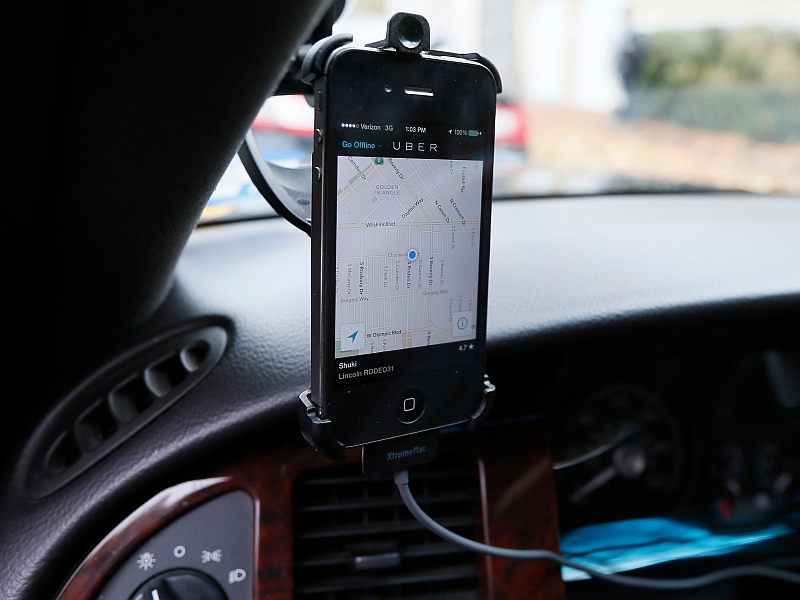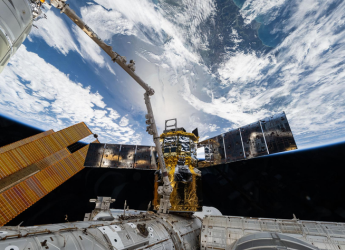- Home
- Apps
- Apps Opinion
- Petitions Against Surge Pricing Are as Misguided as Its Defence
Petitions Against Surge Pricing Are as Misguided as Its Defence

Earlier this year, news broke that the government of Karnataka was considering capping surge pricing employed by cabs where customers pay X times the regular fare. Now, cabs are being booked in Bengaluru for running surge pricing. In my opinion, it's a knee-jerk response caused that likely happened when some lawmaker did not pay attention while booking a cab, and then experienced sticker-shock. There's a Change.org petition to end surge pricing, and frankly, I rolled my eyes at the notion that people now think that an Uber is a right.
The solution to surge pricing, I think, is simply not to take a cab if the rate is too high. At 2x surge, it's still cheaper to take an Uber than it is to call a Meru at Rs. 20/km. After all, it's not like Ola and Uber hide the fact that they're charging a hiked fare, and when that surge is at an unacceptable number to you (for the convenience of a cab that arrives at your location within minutes), then you need only call a local stand, or a radio-taxi service, and wait a little for your cheaper ride.
At the same time, there is no shortage of people who have rushed to defend the right of multi-billion dollar companies to charge whatever they want, on the basis of an opaque algorithm that's treated by people as some holy words that are never to be questioned. There are serious articles that make the case that surge pricing is what makes it possible for Uber and Ola to offer the low rates that they charge most of the time.
Surge, we're told, is a reflection of supply and demand - in areas where the demand is high and the number of cars is low, the price gets raised. This makes it appealing for drivers to go to areas where there are a lot of passengers looking for rides, and the multiplier lowers automatically as supply and demand attain balance. It's a compelling argument, that gets touted a lot - people use it to ask if you're ready to go back to paying Rs. 20/km, or to go back to haggling with auto-rickshaws.
The problem is that we have only the company statements to support this claim. Most drivers, for example, will tell you that they receive only a small part of the surge hike, with the rest going to the platform. As a result, according to multiple drivers across numerous interviews that have taken place over months, surge is barely an incentive to travel from one area to the next, so how exactly does it help deal with increased demand?
And in fact, does surge pricing really help lower prices at other times? Or is the low price being made possible through payouts that come from the huge battle-chests that companies like Uber and Ola have by which they can artificially adjust pricing?
The argument being made against regulating surge pricing is that a price ceiling will only create a shortage in supply; but according to the drivers, surge does not increase supply. And if you're to look at the outraged comments on social media, it does not decrease demand either - it just means that people who are used to frictionless experiences on apps do not notice that they will be paying extra, and then later get a shock and feel fleeced.
The fact is that not having effective price regulation is the reason why the situation with auto-rickshaws is so badly organised across India. Prices are regulated, but the official rates are almost universally ignored because of how out of date they typically are. It's no surprise that autos drivers have to negotiate to get the best rates they can manage.
Unfortunately, because there is no real regulation in place, the driver asks for whatever he thinks he can get away with; and that's why so many commuters have tales of frustration to share when it comes to rickshaws. Unregulated surge pricing actually falls within the same spectrum of behaviour - just wrapped inside a fancy app.
The fact of the matter is that banning surge is unreasonable and hardly beneficial. Regulating it - and all other facets of the cab aggregation business - is, on the other hand, becoming more and more essential.
When you read serious articles from respectable sources that suggest the solution to being fleeced is to allow share autos and private buses, as this would reduce the demand for taxis and therefore automatically make surge pricing redundant, then you know that Uber's PR team is doing an excellent job setting up a reality distortion field.
At no point do Ola or Uber make the mechanism of surge pricing explicit. The processes and considerations that Ola and Uber use for surge pricing are hidden, lack any transparency, and the information that the companies feed you (about cars that are available in your area) through their apps, are actually lies.
We've repeatedly written about the importance of regulating aggregators, instead of just thinking of them as 'technology companies'. I don't believe that there is anything intrinsically wrong with surge pricing; only that there need to be checks and balances in place to ensure that all aspects - from customer safety, to privacy, to pricing - are being safeguarded. Uber and Ola aren't going to get rich from surge pricing; but that doesn't mean we should blindly trust the algorithm just because they do.
For details of the latest launches and news from Samsung, Xiaomi, Realme, OnePlus, Oppo and other companies at the Mobile World Congress in Barcelona, visit our MWC 2026 hub.
Related Stories
- Samsung Galaxy Unpacked 2026
- iPhone 17 Pro Max
- ChatGPT
- iOS 26
- Laptop Under 50000
- Smartwatch Under 10000
- Apple Vision Pro
- Oneplus 12
- OnePlus Nord CE 3 Lite 5G
- iPhone 13
- Xiaomi 14 Pro
- Oppo Find N3
- Tecno Spark Go (2023)
- Realme V30
- Best Phones Under 25000
- Samsung Galaxy S24 Series
- Cryptocurrency
- iQoo 12
- Samsung Galaxy S24 Ultra
- Giottus
- Samsung Galaxy Z Flip 5
- Apple 'Scary Fast'
- Housefull 5
- GoPro Hero 12 Black Review
- Invincible Season 2
- JioGlass
- HD Ready TV
- Latest Mobile Phones
- Compare Phones
- Nothing Phone 4a Pro
- Infinix Note 60 Ultra
- Nothing Phone 4a
- Honor 600 Lite
- Nubia Neo 5 GT
- Realme Narzo Power 5G
- Vivo X300 FE
- Tecno Pop X
- MacBook Neo
- MacBook Pro 16-Inch (M5 Max, 2026)
- Tecno Megapad 2
- Apple iPad Air 13-Inch (2026) Wi-Fi + Cellular
- Tecno Watch GT 1S
- Huawei Watch GT Runner 2
- Xiaomi QLED TV X Pro 75
- Haier H5E Series
- Asus ROG Ally
- Nintendo Switch Lite
- Haier 1.6 Ton 5 Star Inverter Split AC (HSU19G-MZAID5BN-INV)
- Haier 1.6 Ton 5 Star Inverter Split AC (HSU19G-MZAIM5BN-INV)















